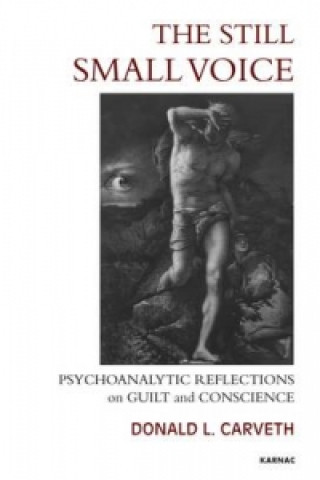
Kézbesítés
Vásárlási tanácsadó





Nem vált be? Semmi gond! Nálunk 30 napon belül visszaküldheti
 Ajándékutalvány
bármilyen értékben
Ajándékutalvány
bármilyen értékben
Ajándékutalvánnyal nem nyúlhat mellé. A megajándékozott az ajándékutalványért bármit választhat kínálatunkból.
Still Small Voice
 Angol
Angol
 162 b
162 b
30 nap a termék visszaküldésére
Ezt is ajánljuk


Whereas Freud himself viewed conscience as one of the functions of the superego, in The Still Small Voice: Psychoanalytic Reflections on Guilt and Conscience, Carveth argues that superego and conscience are distinct mental functions and that, therefore, a fourth mental structure, the conscience, needs to be added to the psychoanalytic structural theory of the mind. He claims that while both conscience and superego originate in the so-called pre-oedipal phase of infant and child development they are comprised of contrasting and often conflicting identifications. The primary object, still most often the mother, is inevitably experienced as, on the one hand, nurturing and soothing and, on the other, as frustrating and persecuting. Conscience is formed in identification with the nurturer; the superego in identification with the aggressor. There is a principle of reciprocity at work in the human psyche: for love received one seeks to return love; for hate, hate (the talion law).Like Franz Alexander and Sandor Ferenczi before him, Carveth views the therapeutic task as elimination of the superego. But unlike his forebears he does not propose its replacement by the rational ego for, in his view, rationality cannot serve as the source of values. Following Jean-Jacques Rousseau, he finds the roots of morality not in reason but in feeling, in sympathetic identification or "pity." With Pascal, he holds that "the heart has reasons reason cannot know." Such "reasons of the heart" form the core of conscience. Unlike the torments inflicted by the demonic superego that merely uses transgression as an excuse to do what it wants-punish and torment the ego-the conscience, what Winnicott called "the capacity for concern," is genuinely troubled by failures to love. The author claims we must face our bad conscience, acknowledge and bear genuine (depressive) guilt, and through contrition, repentance and reparation come to accept reconciliation and forgiveness, or be forced to suffer the torments of the damned-persecutory guilt inflicted by the sadistic internal persecutor and saboteur, the superego.It is the author's view that in human history the damage done by id-driven psychopaths amounts to nothing compared to that brought about by superego-driven ideologists. Freud and subsequent psychoanalysis has largely whitewashed the superego while demonising the id, the alleged "beast" in man, when in reality animals are seldom beastly, at least not in the ways humans often are. While aware of its destructiveness in the clinical realm, psychoanalysts have largely ignored the ideologies of domination-the sexism, racism, heterosexism, classism and childism-that are internalised from unconscionable societies into the unconscionable superego.In the penultimate chapter, drawing on the work of Hannah Arendt, Terry Eagleton and others, Carveth critically reviews the concepts of psychopathy and evil. In the final chapter, he advocates a demythologising, deliteralising or deconstructive approach to the Bible as metaphor, but one that escapes Freud's derogation of this approach by acknowledging, with Hegel at his most honest, that its result is a humanistic ethic no longer to be equated with religion.
Információ a könyvről
 Angol
Angol


 Kapcsolat
Kapcsolat Hogyan vásároljunk
Hogyan vásároljunk


































